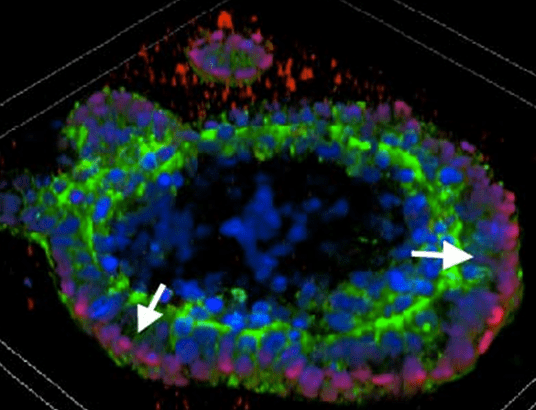
Several approaches have been suggested in the past several years to overcome recurring chemo and endocrine resistant tumor cells. One such strategy that evolved over the years aims to maintain the disease in a chronic state by which the malignant potential is constrained by promoting the cells to differentiate back to their normal phenotype. We recently demonstrated that alpha(v)-beta(3)-integrin (Int-αvβ3) promotes the differentiation of luminal A breast cancer cells in conjunction with their microenvironment to a normal acini-like organoid reminiscent of the normal breast tissue when placed in the 3D reconstituted basement membrane extract (BME) system, and to a more differentiated phenotype when introduced in vivo into a humanized mouse model. This reversion was mediated by the expression and activation of Int-αvβ3 on cancer luminal progenitor-like cells (CLPs) expressing EpCAMhighCD49flow CD24+, which culminated in cell cycle arrest and down-regulation of Notch4 signaling. (Abu-Tayeh et al Cell death and Disease 2016). Hence, these results suggest that CLPs of luminal A breast cancer cells can be induced to differentiate to a more benign phenotype in conjunction with their microenvironment by promoting downstream signaling that emanates from Int-αvβ3, such as inhibition of Notch4 signaling. We are further exploring whether this mechanism can be applied to other sub types of breast cancer and other types of cancers.
